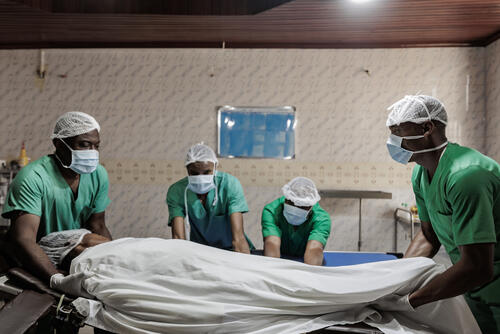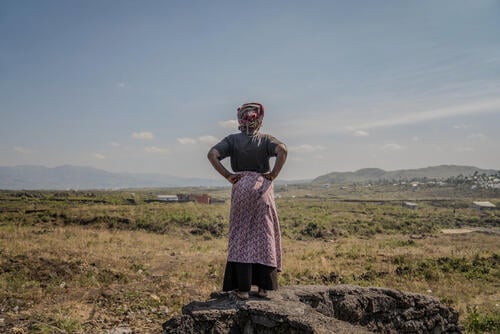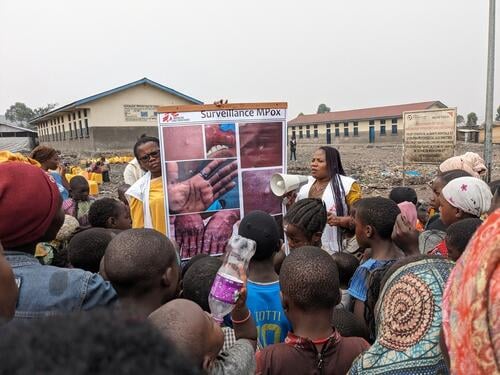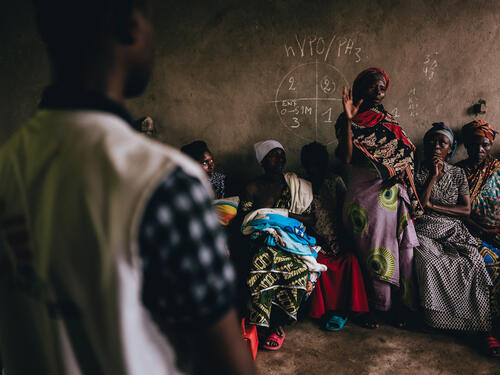A resurgence in attacks by armed groups in Ituri province, Democratic Republic of Congo, since mid-February has resulted in large numbers of people injured and killed, says Médecins Sans Frontières (MSF). MSF teams are running a surgical care centre in the town of Bunia in the province.
“After six months of relative calm, the recent resurgence in violent attacks has resulted in significant loss of life,” says Halidou Alira, MSF head of mission. “This demonstrates that Ituri remains firmly in the grip of violence characterised by unpredictable intensity, with civilians bearing the brunt of these attacks.”
To date, the decades-long conflict in Ituri province, in the country’s northeast, has forced more than 1.63 million people – or one-third of the province’s population – to flee their homes and live in displacement. Cut off from their livelihood and communities, their life in prolonged displacement is very difficult.
Ituri remains firmly in the grip of violence characterised by unpredictable intensity, with civilians bearing the brunt of these attacks.Halidou Alira, MSF head of mission
Between June and December 2023, MSF teams in Bunia’s Salama hospital treated 863 patients and conducted 838 surgical interventions. One-third of the patients treated by MSF teams were direct victims of the violence, including women and children. The types of injuries patients have been treated for are deep cuts caused by machetes and various weapon wounds.
“My child fell victim to an attack by an armed group on my village in Drodro,” says the mother of a two-year old patient. “As we were fleeing, our grandmother who held my little daughter was not able to get away fast enough. They were seized and they cut off her arm with a machete. When my child cried out in fear, they tried to kill her with the machete.”
With a total capacity of 45 beds, MSF's trauma and orthopaedic care centre in Bunia serves as a crucial healthcare hub for the people of Ituri province, who have been affected by protracted conflict. As well as providing complex trauma surgery, the medical teams in Bunia treat burns patients and provide post-trauma care, including physiotherapy and mental health consultations. Road accident victims are also treated due to the high prevalence of these types of injuries and the lack of adequate specialist care in the province.
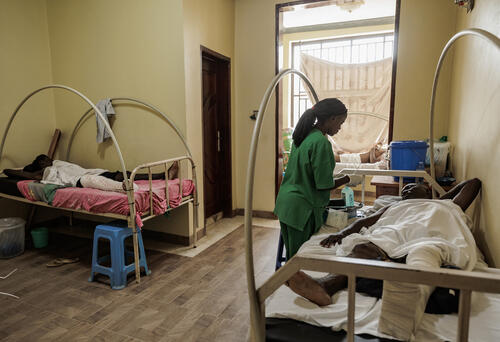
The centre plays a pivotal role in saving lives, while offering tailored and quality medical care to reduce the level of functional disability that patients might otherwise face for the rest of their lives.
“MSF’s medical activities in Ituri address the needs of the most vulnerable people in the province, particularly those in remote areas with very difficult access to healthcare,” says Dr Patrick Nkemenang, MSF medical coordinator. “Bunia’s general reference hospital has limited capacity and could not meet the needs of the population alone, hence the importance of MSF providing additional surgical care that is accessible to all in a volatile security context.”
To strengthen local healthcare infrastructure and improve the quality of medical care, MSF is also training local medical staff, improving the quality of biomedical equipment, supporting the referral system, donating medical equipment and constructing health infrastructure. MSF’s support also extends to the general reference hospital.



